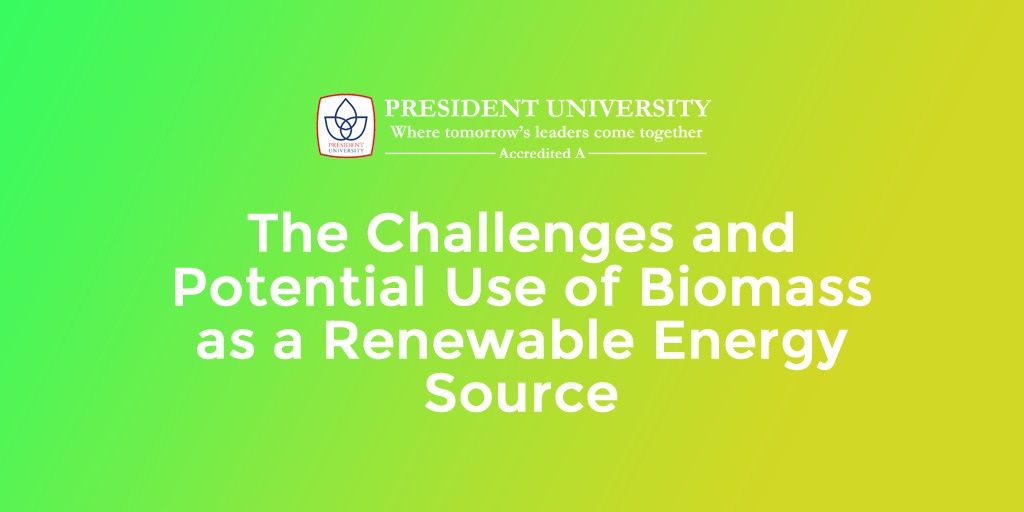The declining oil supply in the earth and the increasing human population have caused serious environmental problems.
In a public lecture entitled Biomass for Renewable Energy Sources: Challenges and its Potential, Rijal Hakiki, SST., MT., President University’s Environmental Engineering lecturer explained that the increasing human population would be followed by an increase in the amount of energy needed to meet their needs. In fact, the current amount of oil supply continues to decline and it is expected to run out in the next few years.

In addition to its depleting availability, the burning of fossil energy sources, both oil and coal that releases carbon dioxide and other harmful substances, has emitted a negative impact on the air and climate. For this reason, a need for alternative energy that is environmentally friendly and sustainable is a top priority.
“The industry is getting bigger, technology is advancing, but there is no awareness from people to reduce or even minimize the use of fossil energy,” said Rijal.
He revealed that biomass is one of the choices of renewable energy sources that are very potential to be used in addressing environmental and energy problems. “Actually, biomass is easily found in our daily lives, starting from the waste that we dispose of, even our own body actually is biomass. Unfortunately, the utilization of biomass in Indonesia has yet to reach its peak, despite its large potential and quantity,” said Rijal.
Rijal said that in Indonesia itself, the great potential of biomass management as an energy source is indeed shown by the plantation, agriculture, and fisheries areas considering that biomass can be processed from waste from garden, agriculture and fishery products (27/5).
Public awareness of these invisible dangers needs to be increased. Society needs to improve the efficiency of the biomass energy produced in a more modern way by utilizing technology.
Rijal added that the use of biomass requires an appropriate management process. “For example, the garbage that is sent to the final waste management site without any processing procedure, and just is placed directly on the ground. Well, that will not bring out a positive impact but it can be a negative one,” he said.
In addition to the process and management techniques that are quite complicated, challenges come from the supply chain or logistics process, where biomass materials need time and transportation to get to the place where it will be processed. Finally, government regulations support and regulate the addition of biomass in the energy source matrix.
Rijal invited the young generation to start doing simple things to support biomass utilization, namely by sorting our own household waste. According to him, this needs to be done because one of the inhibitors of the biomass conversion process is the heat that should be used for biomass decomposition mostly is absorbed by the material/substances that cannot be decomposed. (NG/SL)
Source: https://president.ac.id/p/148-news/detail/718-the-challenges-and-potential-use-of-biomass-as-a-r
